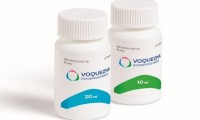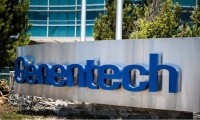-
report
- Source: drugdu
- 258
- November 26, 2023
-
EU pharma legislation may bring ‘more harm than good’ to the region
- Source: drugdu
- 89
- November 9, 2023
-
Phathom passes acid tests, capturing 2 FDA approvals for Voquezna after impurity setback
- Source: drugdu
- 99
- November 4, 2023
-
Morphic’s Ulcerative Colitis Pill Misses Expectations in Mid-Stage Study, Stock Falls
- Source: drugdu
- 163
- September 27, 2023
-
FDA to start review of subcutaneous Entyvio for Crohn’s disease
- Source: drugdu
- 130
- September 15, 2023
-
analysts
- Source: drugdu
- 117
- September 11, 2023
-
Following in Tecentriq’s footsteps, Alecensa gives Roche another win in early-stage lung cancer
- Source: drugdu
- 116
- September 6, 2023
-
FDA Rejects Xspray’s Would-Be Rival to Bristol Myers’ Sprycel on Dosing, Manufacturing Concerns
- Source: drugdu
- 204
- July 13, 2023
-
With Iveric Bio buyout, Astellas CEO Naoki Okamura acted on the company’s mantra to be ‘aggressive’
- Source: drugdu
- 112
- June 15, 2023
-
Johnson & Johnson, Legend file for expanded use of Carvykti after key trial win
- Source: drugdu
- 107
- June 9, 2023
your submission has already been received.
OK
Subscribe
Please enter a valid Email address!
Submit
The most relevant industry news & insight will be sent to you every two weeks.













